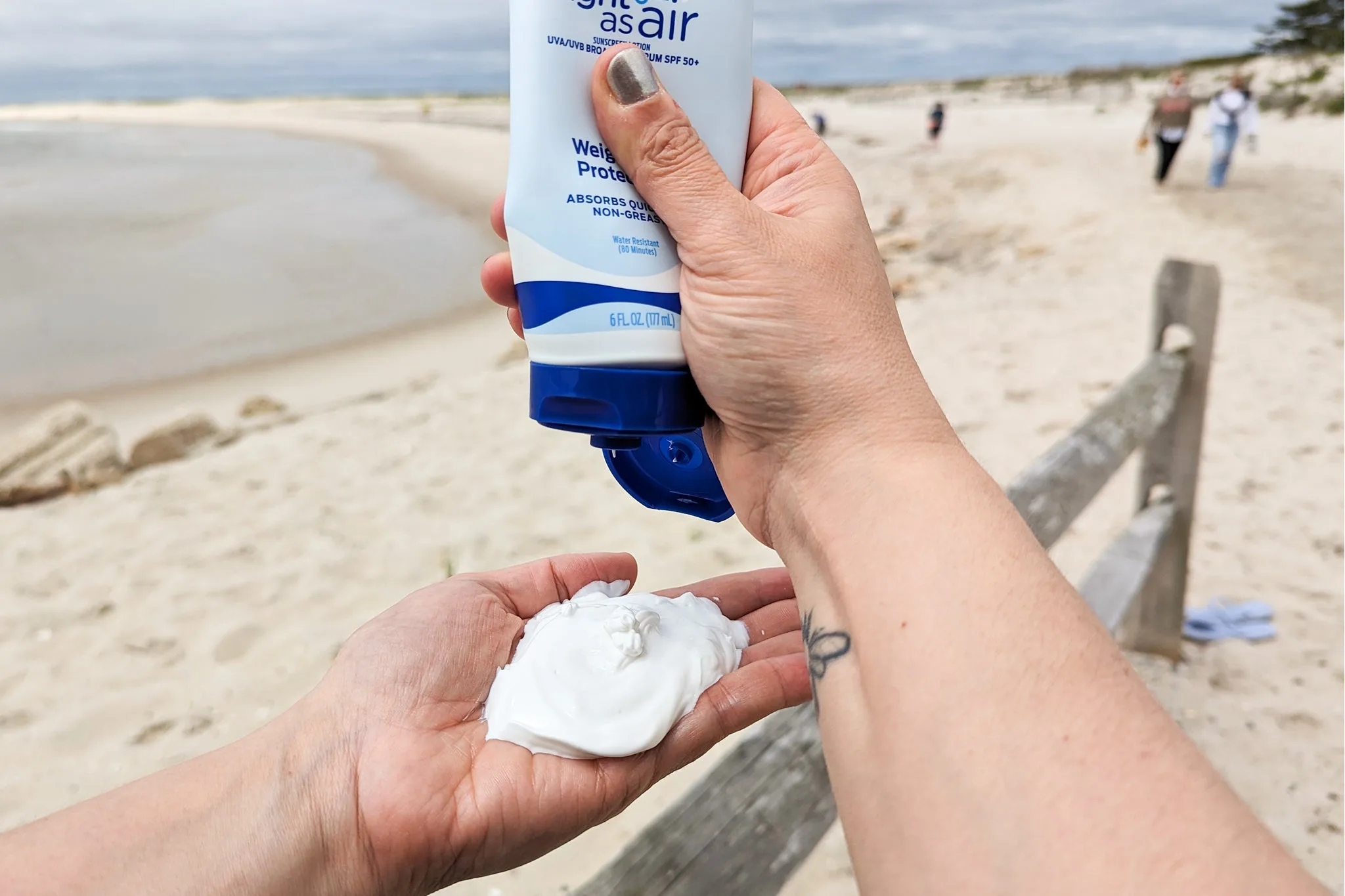Sunscreen is one of the most powerful tools for preventing premature aging, skin cancer, and sunburn. Yet even the most health-conscious people make common sunscreen mistakes that reduce its effectiveness without realizing it. Dermatologists consistently warn that improper sunscreen use is leaving millions of people underprotected—even if they apply SPF daily. The good news? Each mistake has a simple solution that can dramatically improve your skin’s defense against UV damage.

1. Applying Too Little Sunscreen
Most people use less than half the recommended amount of sunscreen. According to the American Academy of Dermatology (AAD), you need about 1 ounce (a shot-glass full) for the body and at least 1 teaspoon for the face. Anything less reduces SPF protection drastically.
Fix: Measure your sunscreen before applying and recheck how much you use. More is better when it comes to SPF coverage.

2. Forgetting to Reapply
Sunscreen is not “one and done.” UV filters degrade after about two hours, faster if you swim or sweat. Failing to reapply leaves your skin as vulnerable as if you never put it on.
Fix: Reapply every two hours, and immediately after swimming, sweating, or towel-drying—even if your sunscreen claims to be water resistant.

3. Only Wearing Sunscreen on Sunny Days
Up to 80% of UV rays penetrate through clouds and windows. UVA rays in particular are responsible for skin aging and pass through untreated glass. Skipping sunscreen on overcast or indoor days still puts you at risk.
Fix: Make sunscreen a daily habit, regardless of weather or whether you’re indoors near windows.
Read Also: Retinol and Tretoin Use – Your excessive skincare routine jeopardize your Pregnancy
4. Missing Key Areas
Dermatologists frequently see sun damage on ears, scalp, lips, eyelids, and the tops of feet—all areas people forget to cover. These are also common sites for skin cancer.
Fix: Apply sunscreen evenly, including overlooked spots. Use SPF lip balm and spray or powder sunscreen for scalp protection.
5. Using Expired Sunscreen
Expired products lose stability, meaning the SPF value on the label no longer reflects reality. Using them creates a false sense of protection.
Fix: Check the expiration date before each use. If none is listed, label the bottle with the purchase date and discard after three years—or sooner if it has changed in smell, texture, or consistency.

6. Trusting Makeup or Moisturizer SPF Alone
Cosmetics and moisturizers with SPF often don’t contain enough sunscreen to provide full protection. Worse, most people apply them too thinly to meet the advertised SPF rating.
Fix: Treat SPF in makeup as a bonus, not a replacement. Always layer a broad-spectrum sunscreen (SPF 30 or higher) underneath.
Read Also: Your Skin Reflects Your Health: What Acne, Dryness, and Discoloration Could Mean
7. Applying Sunscreen Too Late
Sunscreen takes about 15 minutes to bind properly to your skin. Applying it just before or after going outdoors leaves you exposed during the window when UV radiation is strongest.
Fix: Apply sunscreen at least 15 minutes before stepping outside.
8. Believing High SPF Means Unlimited Protection
SPF 30 blocks about 97% of UVB rays, while SPF 50 blocks roughly 98%. The difference is marginal, and higher SPF does not last longer. Application technique matters far more.
Fix: Choose SPF 30 or higher and apply correctly in sufficient amounts. Focus on reapplication instead of chasing higher numbers.
Read Also: Relieve Itchy Skin After Shower Naturally: Proven Remedies That Actually Work
9. Ignoring Sunscreen Ingredients
Chemical filters like oxybenzone and avobenzone can degrade quickly in sunlight, while mineral sunscreens with zinc oxide and titanium dioxide tend to be more photostable and reef-safe. Choosing the wrong formula may mean less reliable coverage.
Fix: Look for “broad-spectrum” on the label. If you have sensitive skin or care about reef safety, select mineral sunscreens.
10. Not Complementing Sunscreen With Other Protection
Sunscreen is essential but not bulletproof. Heat, visible light, and infrared radiation can also accelerate skin aging—a process dermatologists call heat aging. Relying only on SPF ignores these other stressors.
Fix: Combine sunscreen with shade, wide-brimmed hats, sunglasses, and antioxidant skincare. Together, they provide more complete protection.
Read Also: How the Soap You Use Could Be Harming Your Skin — And What to Use Instead
Sunscreen works—when used correctly. By avoiding these common sunscreen mistakes, you maximize your skin’s defense against UV radiation and reduce long-term risks like wrinkles, dark spots, and skin cancer. The science is clear: consistent, proper sunscreen use is one of the simplest and most effective steps you can take for lifelong skin health.



